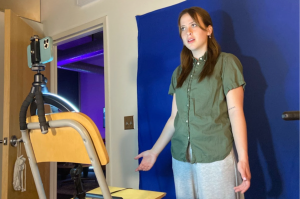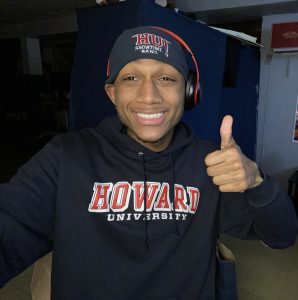 A bill was sent through to the Illinois House of Representatives on March 5 to disband the Illinois Charter School Commission.
A bill was sent through to the Illinois House of Representatives on March 5 to disband the Illinois Charter School Commission.
The commission was created in 2011 through an amendment to the Charter Law of 1997. Its purpose is to make known the best practices of charter schools, resolve all appeals, supervise charter schools authorized by Illinois State Board of Education or the commission, and report bi-annually about Illinois charter schools.
State Rep. Linda Chapa LaVia (D-Aurora), chair of the House Elementary & Secondary Education Committee and chief sponsor of this bill (HB3754), said one main issue with the commission is it has the ability to write legislation, but there are no lawmakers involved.
“We don’t know what is going on with the commission,” she said. “We need to be involved in the process, or put the commission’s duties back under the ISBE.”
This commission was created in with large support from the Illinois House and Senate. Adam Rogalski, director of advocacy and policy leadership for Illinois Network of Charter Schools, said with this type of initial support it is hard for him to understand why there’s a strong push back only two years into the commission’s existence.
“The commission was created through a task force, and has done what it was set up to do,” Rogalski said.
Since its creation the commission has heard 38 appeals from organizations denied by local school districts and has approved only two of these appeals according to Rogalski and state records.
“I don’t see that as rubber stamping,” he said. “The only way to have high-quality charter schools is to have a high-quality commission. I believe a lot of the push back is coming from unions.”
Chapa LaVai said there seems to be a constant conflict of interest with this commission.
Greg Richmond, the president and CEO of the National Association of Charter School Authorizers, also serves on the commission.
Susan Hurley, executive director for Chicago Jobs with Justice and a supporter of this bill, disagrees with the commission’s purpose and existence.
“It tips the balance toward for-profit special interest organizations,” she said. “It allows these organizations to make money off of students.”
Hurley said it’s not fair for a body at the state level to overrule a local school district.
“Local school districts understand the needs of their community, and should be able to make these decisions,” she said.
Hurley used the recent scenario of the seven charter schools approved in the city of Chicago as an example of how harmful this commission is. The seven new charters, approved Jan. 22, by the Chicago Board of Education were controversial because their approval came less than a year after CPS announced it was closing 50 schools.
However, with the current commission still in place, the additional three organizations who presented to the board have the right to petition to the state. This aspect of the commission, overruling the local school districts, is one thing the Chicago Teachers Union and CPS has agreed on in recent months. Both say it is not right for the state to have a say in what goes on in their district.
“At best the commission is a redundant structure, and at worst it’s a destructive structure,” Hurley said.
However, Advance Illinois’ Executive Director Robin Steans disagrees with doing away with the commission.
“One of the values of having this commission is the group has more time to spend on applications,” Steans said. “And its record has been good; only two of the 38 appeals have been approved. The decision to undo something that’s only existed a few years is premature,” she said.
Amanda Simhauser, spokeswoman for ISBE, said the board has the capacity to undertake the tasks of the commission if lawmakers mandate it, but state board of education does not support this bill.
“We’re opposed because the commission has fulfilled its statutory mission, which is authorizing high-quality charters,” Simhauser said.
She said the board of education is willing to work with the General Assembly and the commission if it needs more oversight, but does not feel dismantling the commission is necessary.
“ISBE thinks we should give the commission a chance to fulfill its mission,” she said. “It should be left to do the work it was set up to do.”
If the bill is passed, the commission will be non-existent by July 1, and its duties will be transferred back to ISBE.
“It’s our job to educate all children in Illinois, and if we’re not sitting at the table to tell them what they can or can’t do, who will?” Chapa LaVia said.

















Be First to Comment